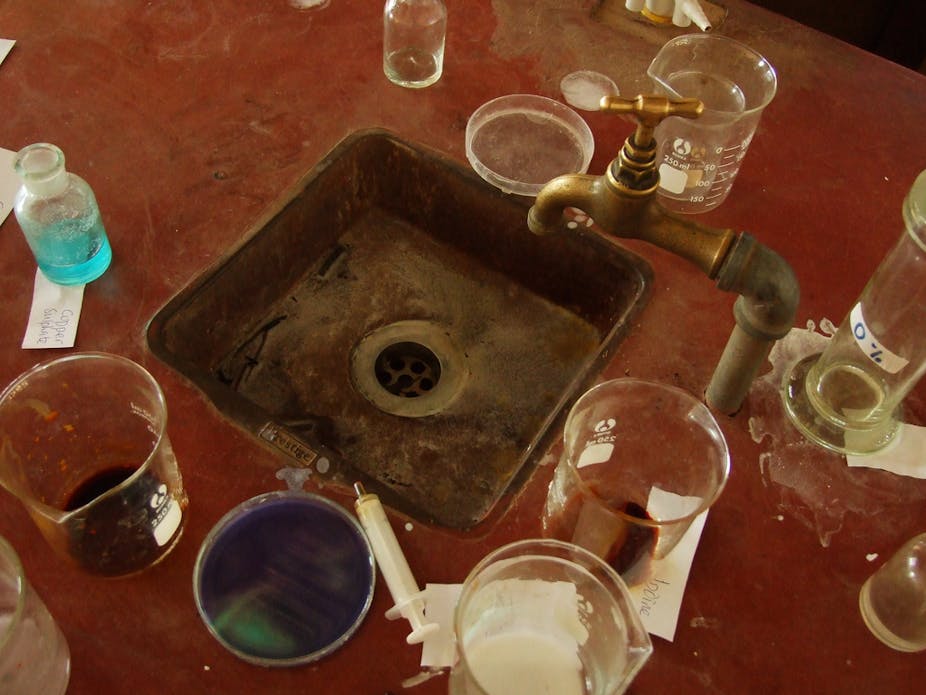Welcome back to If I had a blank cheque I’d …_ our series in which leading researchers reveal what they could do in their discipline if money were no object._
Today we hear from Brynn Hibbert, Professor of Analytical Chemistry at University of New South Wales.
Project: Develop analytical chemistry facilities and training for Africa Cost: $500 million Timescale: 2-5 years (equipment), 5-10 years (training)
Just about everything that happens in our world gets measured. Consider the following:
- medical diagnoses rely on “tests”
- trade depends on products being what the contract say they are
- catching criminals increasingly depends on measurement of DNA sequences and other forensic tests
- sportsmen and women can’t walk on to a field without their urine being analysed for drugs.
But better measurements tend to cost more. Indeed, the spiralling cost of global healthcare is due, in part, to more expensive tests (and drugs) being given to patients who then can’t help but live longer.
So I’d use my blank cheque to buy more winky instruments. Specifically, I’d buy more winky instruments for emerging economies to allow them to survive in the world markets.
What do I mean by this? Well, let’s see.
In 1999 the European Union banned the export of fish from Lake Victoria in Africa, causing a US$200 million loss over two years to the economies of Tanzania, Kenya and Uganda.
There had been considerable support for setting up the fishing industries in Africa, but no-one, it seems, had properly understood that modern infrastructure also includes chemistry labs with decent equipment and trained personnel to assure the quality of the fish.
It was not that the fish were contaminated with heavy metals, pesticides, or petroleum pollution – it was simply that the countries supplying them could not prove with sufficient accuracy they were not.
Training
Alas, if equipment were the only problem, we might be quite happy. But more and better instruments require more and better technical and professional expertise.
The truth is that bottlenecks in the delivery of analytical services are as likely to be due to a lack of skilled analysts as to equipment.

Instruments for MRI, chromatography and the like won’t work like a fancy “speak-your-weight” machine and solve problems with artificial intelligence.
So, given I have a blank cheque, I’ll also provide more funding for training centres and universities, thanks.
This wouldn’t just be in Africa, though – it would also be relevant to Australia.
In 2002, in an important case for forensic science in Australia, the NSW Court of Criminal Appeal found unanimously that the prosecution had not established the chemical identity of a seized white powder.
This was said to be because of shortcomings in the procedures used by the analysts in the Federal forensic chemistry laboratory.
Such shortcomings were due to a lack of training and understanding on the part of the chemists, not an insufficiency of mass spectrometers.
So, let’s take that blank cheque and make it 1,000 times blanker!
Alas, if it were that simple …
Are you an academic or researcher? What would/could you do if money were no object? Contact the series editor, subject: “Blank Cheque”.

